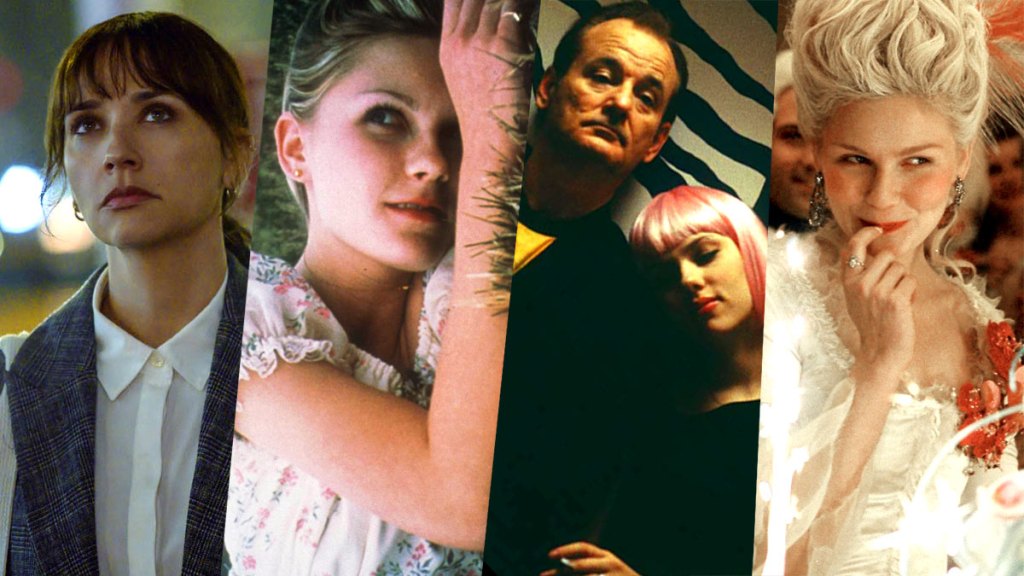Girlhood can be brought down to a few common elements that were the universal experience of every girl at some point. Of course, saying “every girl” here does not entail the myriad of experiences that girlhood can consist of. But we have a habit of confining the imagination of being a girl to some restricting images. And it is often looked at through rose-colored glasses, both literally and metaphorically.
Sofia Coppola, the dream for the Tumblr film kids and the nightmare for sexist male critics. What started with stains of tomatoes labeled as “Nepo-baby”, Sofia’s career as a director is painted using a palette full of pastels and pale pinks. Her take on creating a narrative that majorly surrounds the lives of girls and women gives us a look into a hidden room. Although she uses the same rose-colored glasses to create her films, she does not leave out the complexities of living in a society like ours with the identity of a girl or a woman.

Ms. Coppola’s sense of good taste is undeniable and effortless, and her movies make you feel young, beautiful, and sad. It’s an incredibly seductive proposition, one that has earned her outsize critical respect, a cult fan following, and a distinctive place in the contemporary canon.
She’s also had an enormous influence on the iconography of feminine melancholy — as much as Martin Scorsese has had on the language of male insecurity and rage — manifested in all corners of the culture.
Jeffrey Eugenides’ debut novel, The Virgin Suicides The story, now revered as a modern classic, follows the five Lisbon sisters living in a leafy Michigan suburb during the 1970s. As the title suggests, the girls grow increasingly isolated by the actions of their draconian mother, and eventually all commit suicide. It’s narrated by a chorus of the neighborhood’s boys –now men– who remain fascinated by the tragedy, decades on, and fruitlessly attempt to figure out what compelled them to end their lives.

Six years after its publication, it was made into an ethereal film, famously directed by Sofia Coppola (her debut), starring Kirsten Dunst as Lux, the 14-year-old Lisbon sister, and soundtracked by Air. Her subsequent filmography has remained anchored to this idea, and her films, chopped into GIFs stills and memes, enjoy a parallel digital existence as a kind of visual companion to Ms. Wollen’s thesis, forming a cornerstone of the Sad Girl Internet.
It received a limited release in April 2000 as Paramount Classics was afraid it would encourage ‘copycat’ teen suicides, before going on to achieve slightly more success after a wider release in May. Today, the film and the book are regarded as classics, with Coppola having pulled off the near-impossible feat of making a good page-to-screen adaptation.
Leave a comment